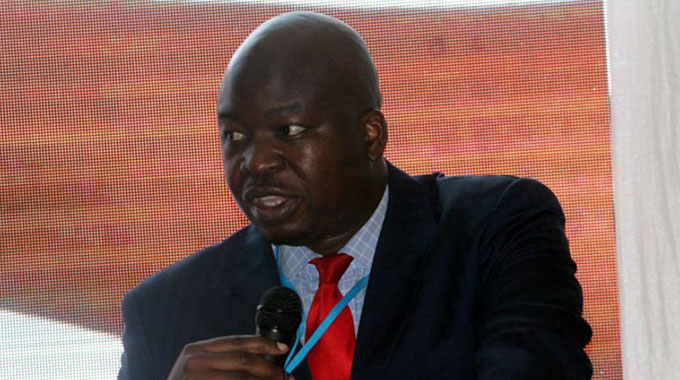EDITORIAL COMMENT: Govt protects the honest while cracking whip

MOST suppliers to the Government have already been paid, starting with those who had done their pricing calculations correctly from the very beginning and who just had to forward the documents for checking and payment.
Quite correctly the Ministry of Finance and Economic Development, which has been granted the authority by Parliament to do the final check on a contract to ensure that the procuring ministry or department is getting value for money, minimised delays for these law abiding businesses offering good value and paid them promptly.
These are the sort of suppliers the Government wants and the sort of businesses it wants to operate in the wider economy. They are businesses who work out the correct price, and quite often this might mean, especially for some products, working out a price in US dollars, add a rational margin and translate this to a Zimbabwean price using the interbank official exchange rate.
When the Ministry of Finance and Economic Development, backed by President Mnangagwa, ordered all State entities to certify invoices presented for payment as complying with the exchange control regulations and offering good value for money, with the Finance Ministry doing a final check, 70 percent of suppliers either shot through this process immediately or, possibly, after a rapid rethink, and have been paid. This is the good news.
The bad news is that 30 percent are being difficult, trying to maintain their profiteering using the black market exchange rates, or even some far higher arbitrary rate they have drummed up from somewhere and regard the Government as a source of instant wealth.
Their hopes that the Government may retreat appear to be forlorn. Permanent Secretary for Finance and Economic Development George Guvamatanga has made it clear that there are no options.
Payment will be made, and made promptly, when a rational price is submitted. The money is in the Government accounts, but is not going to be spent until the Government is certain it is getting value. The fact that the majority have been paid means that the Government does not expect anyone to make a loss when selling to Government, only that they cover their costs and make a fair profit or commission.
If 70 percent can do this, either naturally on first submission or after correcting a “mistake”, then everyone can do it. In theory this is how all prices for State contracts, those that fall under the rules of the Procurement Regulatory Authority of Zimbabwe, are supposed to work, along with the direct purchases made by State entities.
In any batch of tender proposals the odds are supposed to be high that at least one supplier will be totally honest.
However, this is not always the case, as Mr Guvamatanga has noted. With his senior staff he effectively has the final say when implementing the legal duty set by Parliament, and the policy decisions set by President Mnangagwa, which stress the need for legal pricing and good value.
We had the example of computers and laptops being bought by Parliament, at several times the correct value. What was particularly painful was that the chosen supplier offered the lowest price, according to the Clerk of Parliament, suggesting a degree of collusion in some sectors. The Treasury killed the deal and wants a new tender, and hopefully this time the message has got home. The Finance Ministry is also ready to blacklist some suppliers, and that sort of action is required. You may get the curiosity that the least greedy of a bunch of profiteers gets black listed, while those whose bid wanted to gouge the Government even more get a second chance, but they will have to reform quite dramatically if that second chance means anything.
Generally speaking, as Mr Guvamatanga noted, when the Government is the largest single customer, and for many products it is either the largest or even the only customer, it should expect suppliers to be looking at bulk discounts.
The amount of overhead work to sell one item is not much different than the overhead on selling 100 of the things in a single order, so big companies and other major entities, like the Government, normally get a modest discount.
This is common in the private sector, but it appears that some supplying the Government seem to think differently and assume “it’s only Government” and regard the taxpayer as a cash cow who will pay anything. That has now changed. The same business sense had entered the private sector at all levels. Retailers often are unfairly blamed for a price increase. In fact it is almost always the suppliers. But a lot of cosy relationships are now being destroyed with greater competition in some areas and the squeeze on liquidity.
Going round a supermarket right now it is fairly obvious that some suppliers are hurriedly recalculating their prices, and reportedly even doing this after the shop has paid by issuing a credit note. There are two effects.
First it is ever more obvious that brand loyalty has largely been replaced by wallet loyalty, and the cheaper brand moves more swiftly. But secondly customers who found a particular product was too expensive and so stopped buying can be attracted back if at least one supplier drops the price.
We have seen when one supplier is coming down, the competition suddenly recalculating when the shop declines to reorder because their product is just gathering dust on the shelf. The process needs to continue, with victory when that bread cartel finally accepts that capitalism means competition, not guaranteed profits.
Some of the price surges were based on the assumption that the spike in inflation, driven by the spike in black market exchange rates, would continue and suppliers were gazing at a graph and working out the price in three or four weeks time when they were paid.
When they were wrong the honest retreated. These were presumably the first retreats, honest businesses making a mistake and fixing it.
But some declines are so dramatic it appears that consumers were being treated like the Government by some suppliers, as mugs who had unlimited money and could not do sums. And these suppliers are the ones most definitely hit. We even have the oddity that sometimes the imported product is cheaper than the local supplier, despite the duty, and that implies profiteering on a grand scale, or such gross inefficiency that the supplier needs to rethink their entire business.
All consumers, and this includes the Government, the biggest of us all, can tame the suppliers and the profiteers by simply not buying from those who dream up huge margins.
As the Government has discovered, by being shown the actual pricing calculations as the honest rushed in to clear their names, there are a lot of businesses who do operate properly, making a reasonable profit and paying their workers, but who refuse to profiteer preferring to treat their customers as special people whose support they appreciate.
In the changes we are seeing now we hope that this group will accelerate to the top and that we will all remember who was on the consumer’s side and who was not and act accordingly in the future when we unzip our wallets.











Comments